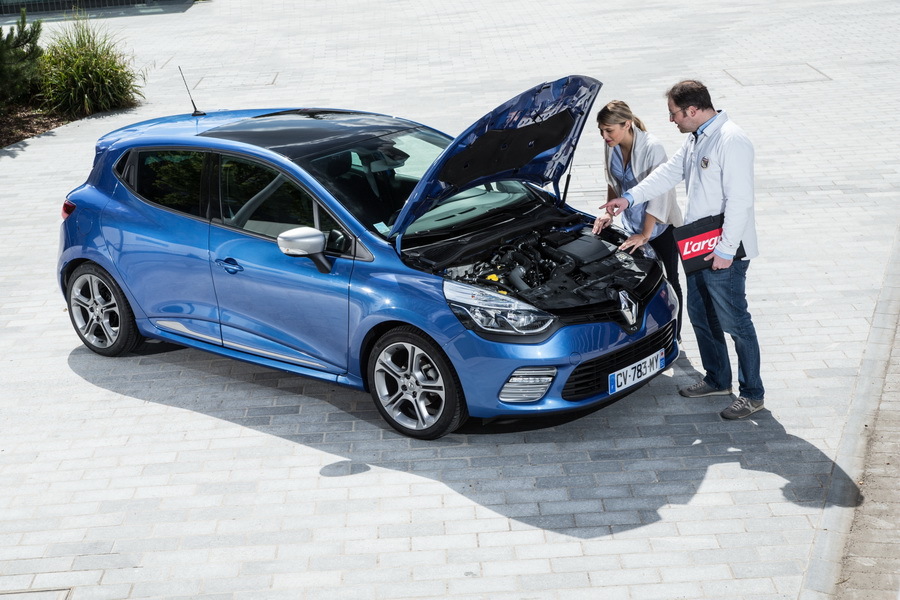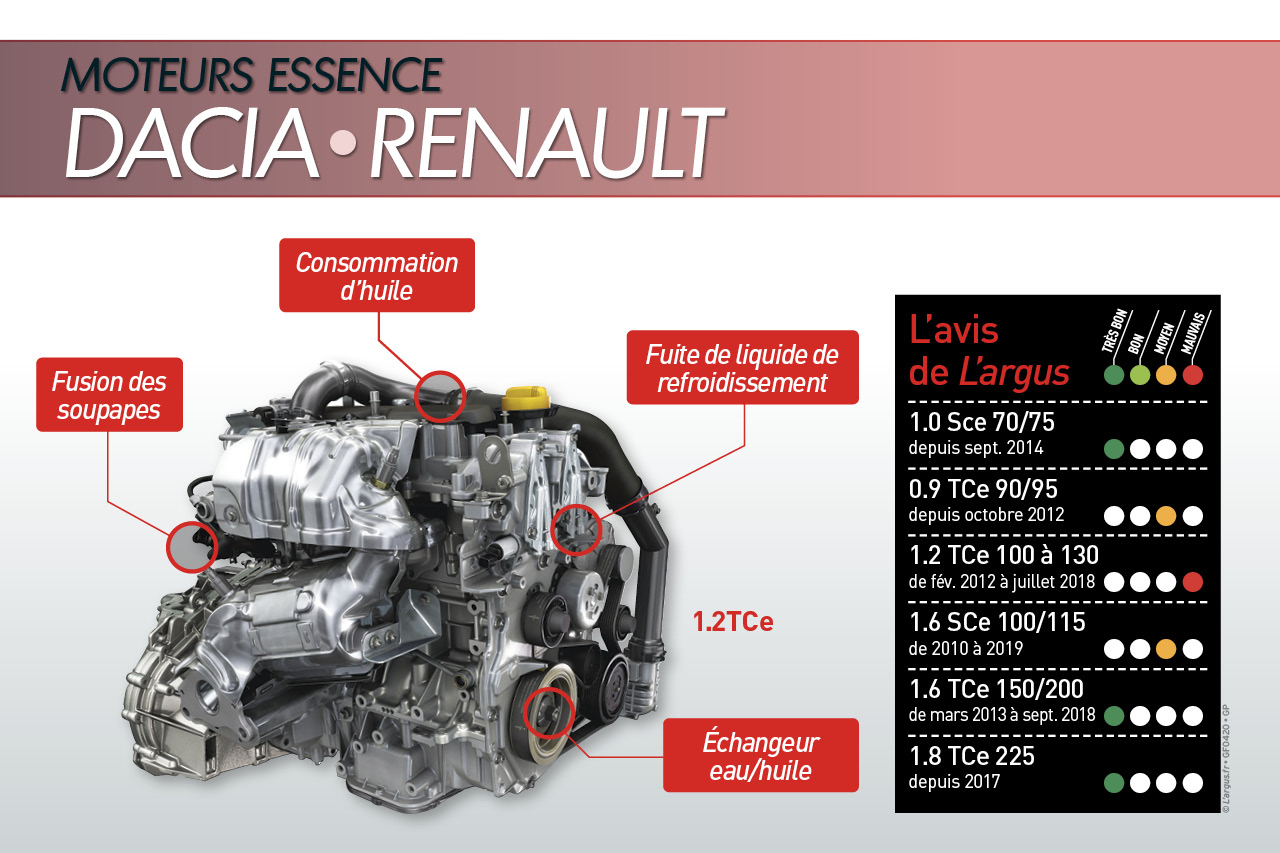
In terms of automobile reliability, collective action is still rarely used in France. But Renault will soon come to terms with the plaster due to the overconsumption of oil in the 1.2 TCe engine, which has caused numerous breakages that are not always well compensated.
If you are a loyal reader of Argus, you have already heard about the reliability issues of the Renault 1.2 TCe. You probably know that this small four-cylinder turbo gasoline engine, used to power many models between 2012 and 2016, is subject to excess oil consumption that can lead to breakage. A fault that the French manufacturer is frequently accused of minimizing, despite a formal notice from the consumer association UFC Que Choisir in 2019. But today, it is another type of defense, at the legal level this time, which is being put in place. Four lawyers want, in fact, to launch a collective action to help owners to be better compensated.
Registration open until March 8, 2022


In addition to many Renault cars, this defect concerns Dacia Duster 1, Lodgy and Dokker, Nissan Juke, Pulsar and Qashqai 2, as well as certain Mercedes Citan vans and MPVs, cousins of the Kangoo. In return, to participate, you will need register before March 8 next on the Internet and pay 159 to 519 € to join the criminal proceedings which will take place in two phases: first a “probationary summary”, which is quite fast (about three months), then a “direct citation”, which requires more of time. Those with modest incomes may, however, be able to benefit from legal aid from the Ministry of Justice, while others may call on their legal protection to obtain support. Once the registration period is over, a formal notice will be sent to the Renault-Nissan-Dacia group. The latter will then have fifteen days to respond favorably by opting for an amicable negotiation. Otherwise, the probationary summary before the court will be initiated.
A charge of endangering the life of another

Lawyer at the Paris Bar and Doctor of Law, Christophe Lèguevaques is already well versed in this kind of collective action. Through its MyLeo digital platform, it is leading several head-on, in particular one against Volkswagen in the context of dieselgate. If he privileged the criminal to the civil within the framework of this “ motorgate »Renault, it is to avoid being opposed to questions of prescription (limitation period which occurs five years after the vehicle is put into service in this type of file) and because “ that necessarily required an individual expertise. So it was very difficult by taking the civil route to offer a global collective approach to the problem. This is also what Renault does: the brand walks people by separating them from each other in order to be sure of being able to take them where it wants ”. Besides the facts of “Deception” for having sold, in particular used, vehicles which presented a well-known design defect without notifying the customer, the lawyer intends in particular to plead a “Endangering the life of others”.
“The lawyer claims to have had many testimonies from people who have had an engine failure on the highway when they were at 130 km / h, overtaking, and suddenly found themselves with a vehicle that was having difficulty in going over 50 km / h, which was extremely dangerous because they often found themselves sandwiched between a truck in front and a truck behind.“
Defects known for a long time

The lack of oil could sometimes cause sudden breakage of the timing chain, generating a vibration of the camshaft shifter and causing the chain to lengthen until it breaks. Like Argus It has been mentioned several times: it is a low pressure in the intake manifold which, combined with a high vacuum in the cylinder, causes a lack of sealing at the level of the second piston ring and causes overconsumption of lubricant. As on the 1.2 PureTech PSA and other direct injection mechanicals, a carbon accumulation phenomenon can also end up “melting the engine” by auto-ignition.
TO READ. Citroën, DS, Peugeot, Renault: are petrol engines reliable?
No official recall campaign


Unfortunately, no official recall has ever been requested by the authorities, as they considered that these now well-known design flaws did not pose any real safety concerns. But if the collective action goes until the end of its second phase, it intends to ask for much more than just partial coverage of repair costs; a participation already granted fairly regularly by Renault, even if it was necessary to insist heavily on this. Compensation for “moral damage” will also be claimed. “Because of the disorganization suffered by the loss of your vehicle, the fear you felt during the incident or the anxiety you are now experiencing that you know that your vehicle presents inherent dangers”, specifies the official website of the action.
TO READ. Oil consumption: gasoline and diesel engines to watch out for















